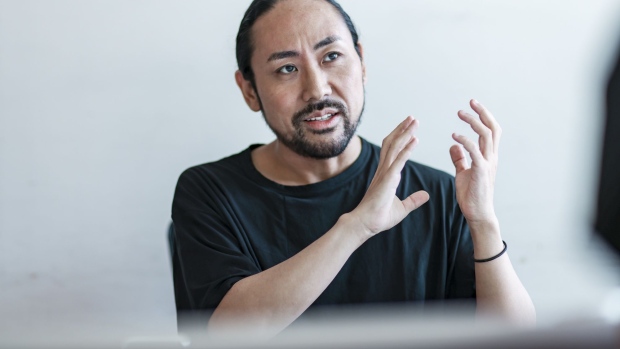Jun 24, 2021
Buddhist Monk Who Built Popular Tokyo Startup Seeks IPO in 2021
, Bloomberg News

(Bloomberg) -- Kazuma Ieiri was bullied at school, too poor to go to university, and spent years in his bedroom as a recluse. More than 20 years later, he’s aiming to take his startup public at a valuation of more than $1 billion.
Campfire Inc., which helps individuals and small groups raise funds online, is seeking to list shares this year at a valuation of as much as 200 billion yen ($1.8 billion), Ieiri said in an interview. It’s a long-anticipated IPO for the popular crowdfunding operator, the biggest such business in Japan.
Ieiri, 42, is one of a growing number of chief executive officers who fell off the typical path to success in Japan but are now making their fortunes in its tech startup scene. Campfire, the third company founded by the Buddhist monk and onetime candidate for Tokyo governor, has funded more than 50,000 projects since it started in 2011.
It’s a remarkable turnaround for a man who learned to code in his bedroom during the years he spent there as a teenager with social anxiety issues.
“I was saved by the internet,” Ieiri said at the company’s headquarters in Tokyo. “I was able to make my voice heard through it.”
The pandemic increased the need for sites like Campfire as cafes, restaurants and small businesses facing downturns in customers used it as a way to supplement revenue. People who found themselves jobless also tapped it to get new ventures off the ground. The company’s gross merchandise volume more than tripled in 2020 from the year earlier to 20 billion yen ($180 million), Campfire said.
Ieiri also helped set up Base Inc., the e-commerce platform operator that was founded by one of his former interns. Base went public just before the pandemic started, and its shares have since surged more than 500%.
Ieiri’s success in building ventures -- he is the top shareholder of Campfire and has a stake in Base -- means his days of poverty are behind him, but the serial entrepreneur says he’s not in it for the money. He said growing up poor shaped his desire to help others who are in financial need.
Ieiri was bullied as a child and quit school in his teens. He retired to his bedroom, becoming what’s called in Japan a “hikikomori,” a young person who shuns society. There he found consolation chatting on online bulletin boards, connecting with others going through the same experience.
He received his high school diploma remotely, and worked as a paperboy to support himself while preparing for university exams, intending to study art. But he failed to get into his desired school, while a family illness meant he needed to become the breadwinner.
Ieiri got jobs at several companies, but he soon found life as an employee wasn’t for him. He either quit or was fired, and eventually decided to start his own business -- one that didn’t require him to interact with other people.
“It occurred to me I could do something using the internet,” he said. “That’s where it all started.”
Ieiri founded his first company in 2001 at 22, later naming it Paperboy & Co. after his days delivering newspapers. It initially rented out internet servers to individuals. In 2004, he sold it to GMO Internet Inc., the Tokyo-based firm founded by entrepreneur Masatoshi Kumagai. It still exists today as one of GMO’s many units, GMO Pepabo Inc.
Ieiri invested the proceeds in other startups while mulling his next business before founding Campfire. He chose to help others raise funds because of the days he spent alone, devoid of resources, he said.
“Everyone’s born into different situations -- whether they have money or not, whether they have someone to support them or not, and that opens up gaps between them,” he said. “But maybe we can use the democratizing technology of the internet to solve that.”
The market for crowdfunding is expanding in Japan, which bodes well for companies like Campfire, according to Tomoichiro Kubota, a senior market analyst at Matsui Securities in Tokyo. However, some may question the sustainability of the business model, he said.
“Crowdfunding is difficult,” he said. “There have been examples of crowdfunding sites that haven’t gone so well.”
Ieiri said one of the reasons he’s targeting an IPO is he wants to make the company bigger and be able to lower the commission fees.
“It’s our duty to be able to hand over even just one more yen to these people, and to do that gross merchandise volume has to be much, much bigger,” Ieiri said. “An IPO is something that’s on our way to getting there.”
©2021 Bloomberg L.P.





